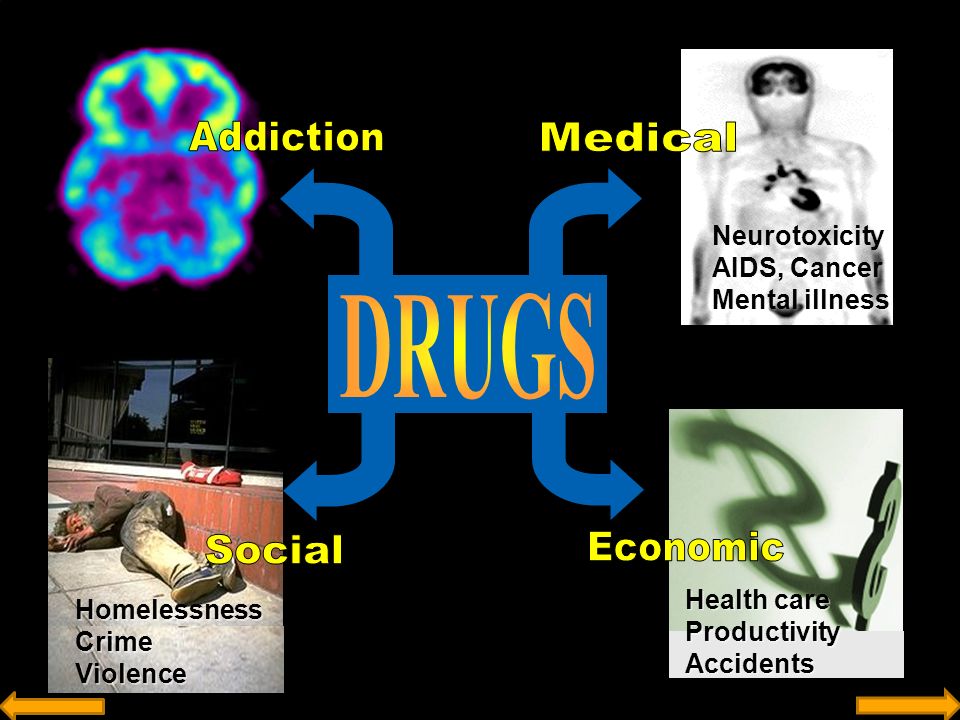THE EFFECTS OF DRUG ABUSE ON HEALTH
Substance use disorders are associated with a wide range of short- and long-term health effects. They can vary depending on the type of drug, how much and how often it’s taken and the person’s general health. Overall, the effects of drug abuse and dependence can be far-reaching. They can impact almost every organ in the human body.
Side effects of drug addiction may include:
- A weakened immune system, increasing the risk of illness and infection
- Heart conditions ranging from abnormal heart rates to heart attacks and collapsed veins and blood vessel infections from injected drugs
- Nausea and abdominal pain, which can also lead to changes in appetite and weight loss
- Increased strain on the liver, which puts the person at risk of significant liver damage or liver failure
- Seizures, stroke, mental confusion and brain damage
- Lung disease
- Problems with memory, attention and decision-making, which make daily living more difficult
- Global effects of drugs on the body, such as breast development in men and increases in body temperature, which can lead to other health problems
All drugs–nicotine, cocaine, marijuana and others–affect the brain’s “reward” circuit, which is part of the limbic system. This area of the brain affects instinct and mood. Drugs target this system, which causes large amounts of dopamine—a brain chemical that helps regulate emotions and feelings of pleasure—to flood the brain. This flood of dopamine is what causes a “high.” It’s one of the main causes of drug addiction.
Although initial drug use may be voluntary, drugs can alter brain chemistry. This can actually change how the brain performs and interfere with a person’s ability to make choices. It can lead to intense cravings and compulsive drug use. Over time, this behavior can turn into a substance dependency or drug and alcohol addiction.
Alcohol can have short- and long-term effects on the brain and disrupts the brain’s communication pathways. These can influence mood, behavior and other cognitive function.
Brain damage may also occur through alcohol-induced nutrition deficiencies, alcohol-induced seizures and liver disease. In pregnant women, alcohol exposure can impact the brains of unborn babies, resulting in fetal alcohol spectrum disorders.
It is reported that alcohol-induced brain problems can often be corrected with proper treatment. Abstinence from alcohol for months or years can help partially repair thinking abilities, like memory skills.
Illicit drug use poses risks for pregnant women and their babies. Drugs may contain impurities that can be harmful to an unborn baby. Pregnant women who use drugs may be more likely to harm the fetus with risky behaviors and poor nutrition. Drug use can lead to premature birth or low birth weight. It can also cause the baby to have withdrawal symptoms (sometimes in the form of neonatal abstinence syndrome), birth defects or learning and behavioral problems later in life.


